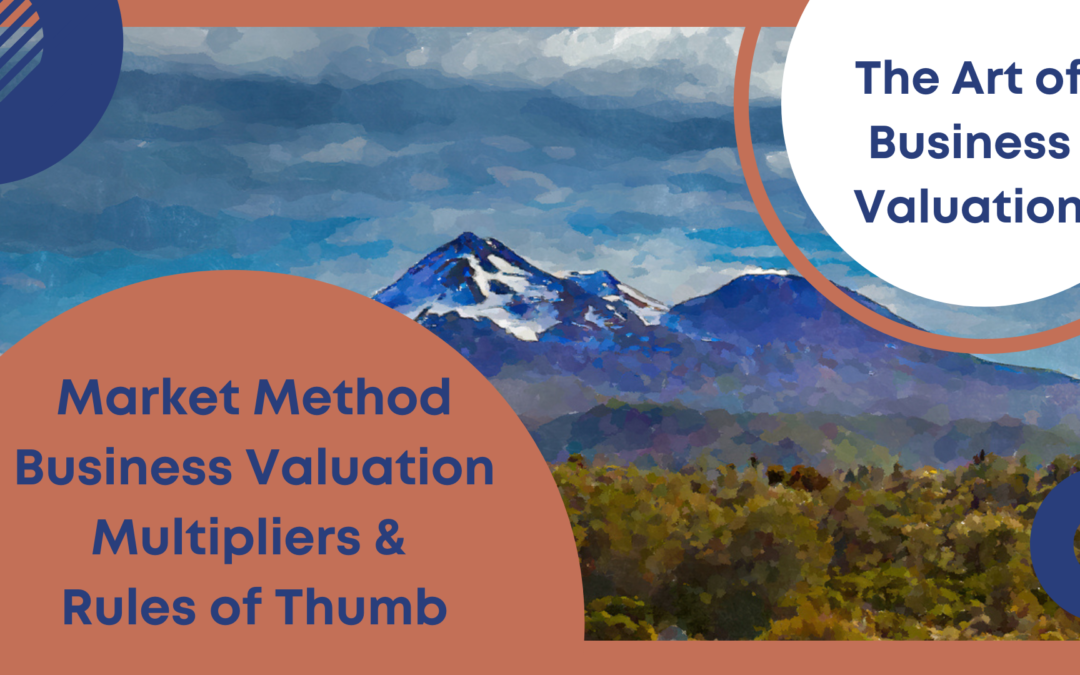Gregory R. Caruso, JD, CPA, CVA
Business valuation market method multipliers are useful as rules of thumb or sanity checks on business valuations, calculations, and estimates. Below, I include many small business multipliers and industry multipliers such as construction, HVAC, plumbing, auto repair, manufacturing, accounting and service businesses, liquor stores, distributors, and more.
Many business owners just want the question answered – what is the business valuation multiplier for my business? Well, hang on. Using multipliers for business valuation is at best a rule of thumb and not a professional business valuation. Although sometimes, a multiplier is all you need.
Click to download small business valuation multipliers for many small businesses and companies.
Disclaimer: These business valuation multipliers are our best belief based on 20+ years valuing hundreds of small businesses and brokering over 60. The typical small business has an SDE multiplier range of 1 to 3, and 2.2 is about average. Again, using these multipliers is a rule of thumb NOT a business valuation. Always obtain a professionally prepared business valuation for major life decisions, tax matters, estate and gift tax planning, succession and exit planning, required fairness opinion or other compliance.
Watch the 1:35 Minute Video About Market Multipliers and
Rules of Thumb Below.
What is a Business Valuation Multiplier?
The market method valuation approach formula for valuing business is:
Future Cash Flow x Multiplier = Indication of Value
Multipliers are estimated by taking reported business transactions and dividing the sales price by the business’s reported cash flow. This is the only method that ties to actual sales in the marketplace. In an actual business valuation, there are several other additions to the formula. These include adjusting the cash flows, adjusting the balance sheet, and taking into account discounts and premiums. All of these can impact value. Business valuation is more than this simple version of the market method formula.
There are several cash flows commonly used including revenues, Sellers Discretionary Earnings (SDE), and Earnings Before Interest, Taxes, Depreciation, and Amortization (EBITDA) in the market method. There are other cash flows occasionally used or used in different industries including gross revenues, EBIT, after tax cash flow and more. I recently shared more about cash flows in “Five Cash Flows Used in Business Valuation.”
It is important to align the cash flow used with the proper multiplier. It is also important to adjust the multiplier based on profitability of the company, systems, employees and contractors, customers, products, inventory on hand, economic outlook, industry outlook, and many other factors. That is why just applying a multiplier to a cash flow without judgment can be so misleading.
How to Select the Right Multiplier
Most business owners select a multiplier that is too high. Certainly there are “high multiplier” companies out there, but often the cash flow multiplier actually drops as the company becomes more profitable. While this seems hard to believe, we have charted hundreds of companies and can assure you it is common.
When the market method is properly applied, multiple data points (usually 10 – 30) are obtained and compared to the subject company. Usually industry, revenue range, date range of transactions, and profitability range are all searched. It is important to chart the data by profitability. Comparables are then examined as a group. When appropriate, they are also examined individually to fully understand how the comparables really compare to the company being valued. We recommend DealStats from BVR as this is the best small business data at this time.
Multipliers Are Not Always Best in Business Valuation
As with all business valuation, professional judgment comes into play. While we are pleased to post these business valuation multiples for your use we highly recommend you have a proper business valuation performed by a professional business valuator–if it is to be used for anything beyond a fun conversation.
We are always available to serve you in that capacity. Contact Greg Caruso for more information about professional valuation services.

